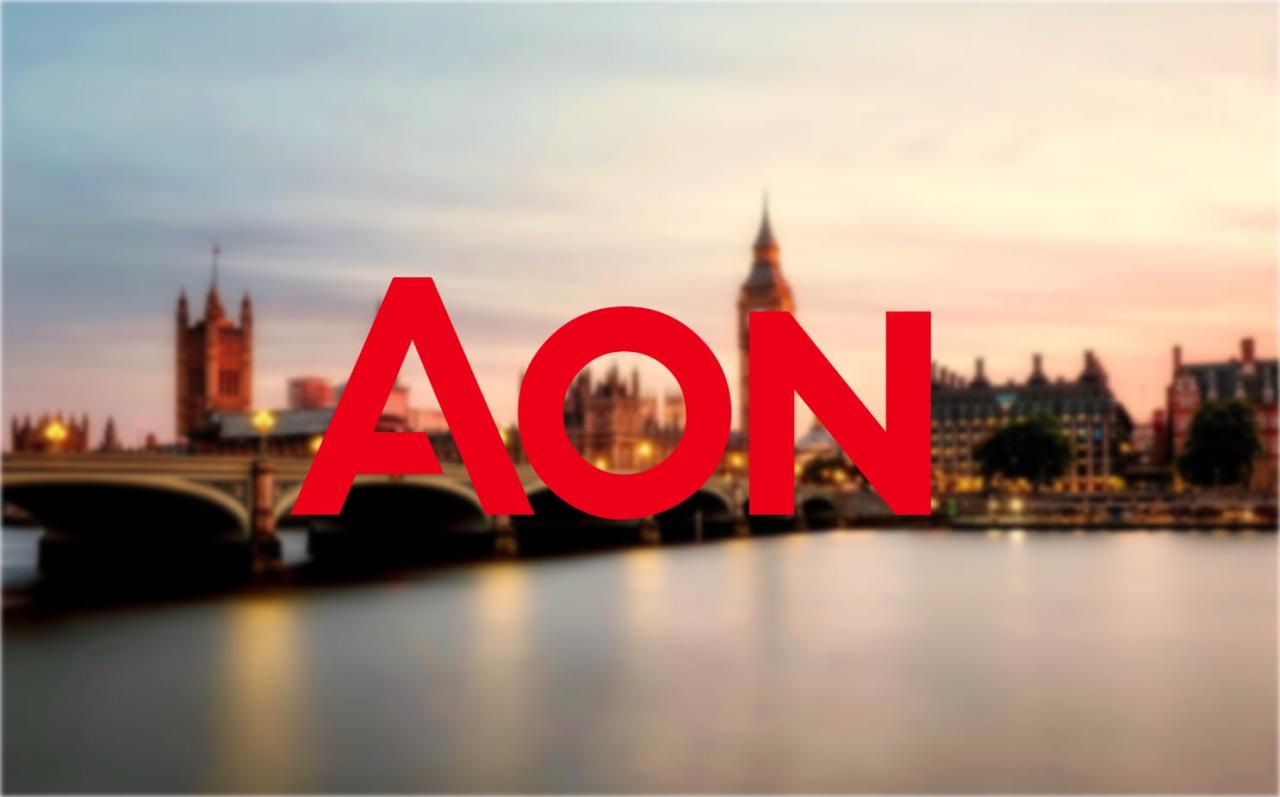Aon travel insurance provides peace of mind for your adventures. Whether you’re planning a quick weekend getaway or an extended backpacking trip, Aon offers a range of plans to suit your needs and budget. From single-trip coverage to comprehensive annual multi-trip options, they’ve got you covered for unexpected events like medical emergencies, trip cancellations, and lost luggage. Understanding your options is key to choosing the right plan, so let’s explore what Aon has to offer.
This guide will walk you through the different Aon travel insurance plans, the claims process, and how they compare to competitors. We’ll also delve into policy details, common exclusions, and real-life scenarios to illustrate how the insurance can help during unexpected travel hiccups. By the end, you’ll be well-equipped to make an informed decision about protecting your next trip.
Claim Process and Customer Support

Making a claim with Aon travel insurance is straightforward, but understanding the process and what documentation you need will make it smoother. This section details the steps involved, the support available, and situations that might lead to a claim denial.
Aon aims to process claims efficiently and fairly. Their commitment to customer service is a key part of their offering, and they provide various channels to help you through the process.
Claim Submission Steps
Submitting a claim involves several key steps. Following these steps carefully will help ensure a timely and successful resolution.
So, you’re planning a trip? Awesome! Don’t forget travel insurance! Check out this resource for Aon travel insurance options to get you started. It’s super important to protect your investment and peace of mind. Then, for a different perspective and maybe some extra tips, you can also browse this blog post about Aon travel insurance – it might have some helpful insights you didn’t find elsewhere.
Seriously, getting insured before you go is a total game-changer.
- Report the incident: As soon as possible after an incident occurs (e.g., a medical emergency, lost luggage, trip cancellation), contact Aon to report it. This initial notification is crucial.
- Gather necessary documentation: Collect all relevant documents, including your policy details, flight/hotel confirmations, medical bills (if applicable), police reports (for theft or loss), and any other supporting evidence.
- Complete the claim form: Aon will provide a claim form which needs to be accurately and completely filled out. Provide all requested information and attach the necessary documentation.
- Submit your claim: Submit the completed claim form and supporting documentation via Aon’s preferred method (online portal, mail, or fax, as specified in your policy documents).
- Aon reviews your claim: Aon will review your claim and supporting documentation. They may request additional information if needed.
- Claim decision and payment: Once the review is complete, Aon will notify you of their decision and, if approved, process the payment according to your policy terms.
Required Documentation, Aon travel insurance
The specific documents required will vary depending on the type of claim, but generally include the following. Having these ready will expedite the process.
- Your Aon travel insurance policy details (policy number, etc.)
- Copies of relevant tickets (flights, trains, etc.)
- Medical bills and reports (for medical claims)
- Police reports (for theft or loss)
- Photos or videos of damaged or lost items (for baggage claims)
- Cancellation confirmations (for trip cancellation claims)
Customer Support Channels
Aon offers multiple ways to contact them for assistance with your claim or any other travel insurance related inquiries. Choose the method most convenient for you.
- Phone: A dedicated customer service phone number is usually provided in your policy documents. Expect wait times, particularly during peak seasons.
- Email: Aon often provides a specific email address for claims or general inquiries. Response times may vary.
- Online Chat: Some insurers offer online chat support on their websites, providing immediate assistance for simple questions.
Claim Denial Scenarios
While Aon strives to approve legitimate claims, there are instances where a claim might be denied. Understanding these scenarios can help you avoid them.
So, you’re planning a trip? Awesome! Before you jet off, remember travel insurance is key. Check out this resource for Aon travel insurance options: aon travel insurance. It’s super important to compare different plans, and another great place to start your research is this blog post on aon travel insurance which dives into specifics.
Don’t leave home without it!
- Pre-existing conditions: Claims related to pre-existing medical conditions may be denied unless specifically covered under your policy with appropriate declarations.
- Failure to follow policy guidelines: Not reporting the incident promptly or failing to provide required documentation can lead to claim denial.
- Activities excluded by the policy: Engaging in activities explicitly excluded in your policy (e.g., extreme sports) may result in claim denial for injuries or losses sustained during those activities.
- Fraudulent claims: Submitting false or misleading information will result in claim denial and may have further legal consequences.
- Insufficient evidence: Lack of sufficient evidence to support the claim, such as lack of medical documentation or police report.
Aon Travel Insurance Policy Details and Exclusions

Understanding the specifics of your Aon travel insurance policy is crucial for a smooth trip. This section details what’s covered, and equally important, what’s not, to avoid unexpected costs during your travels. Knowing your policy’s limitations empowers you to make informed decisions and plan accordingly.
Policy Exclusions and Limitations
Aon travel insurance policies, like most, have exclusions and limitations. These are specific situations or circumstances where coverage won’t apply. It’s vital to carefully review your policy wording for complete details, as coverage can vary depending on the specific plan you purchased. Common exclusions often relate to pre-existing medical conditions, reckless behavior, and certain activities.
Examples of Situations Without Coverage
Several scenarios might not be covered. For instance, if you have a pre-existing medical condition that worsens during your trip, and this wasn’t declared before purchasing the policy, you may not receive full coverage for related medical expenses. Similarly, engaging in extreme sports or activities not explicitly listed as covered (often including activities like skydiving or bungee jumping) typically void coverage for any injuries sustained during these activities.
Finally, travel disruptions due to events that were known or foreseeable before your trip, such as scheduled airline strikes, might not be covered for trip cancellations or delays.
Key Terms and Conditions
Understanding key terms is essential. A pre-existing condition refers to any illness or injury you had before purchasing the policy. Accurate disclosure of pre-existing conditions is crucial for determining eligibility for coverage. Emergency medical evacuation refers to the transportation of an insured person from a remote location to a medical facility capable of providing appropriate care. This typically involves specialized medical transport, often by air ambulance, and can be a significant expense.
Policy limits and conditions on such evacuations vary based on your plan.
Frequently Asked Questions Regarding Policy Exclusions and Limitations
Understanding the nuances of your policy is crucial. Here are answers to frequently asked questions concerning exclusions and limitations.
- What constitutes a pre-existing condition? A pre-existing condition includes any medical condition, illness, or injury you were aware of or received treatment for within a specific timeframe (usually 90 days) before your policy’s effective date.
- Are activities like scuba diving covered? Coverage for scuba diving depends on the specific policy. Some plans offer coverage for recreational scuba diving within specified limits, while others may exclude it entirely. Check your policy’s activity coverage section.
- What if my trip is cancelled due to a hurricane? If the hurricane was foreseeable before your trip, or if your policy specifically excludes weather-related cancellations, your claim might be denied. However, if the hurricane was unforeseen and caused a covered cancellation, your claim might be approved, subject to the policy’s terms and conditions.
- What happens if I lose my passport? Most policies offer coverage for passport replacement expenses, but this usually involves a deductible and might be subject to limitations on the amount reimbursed.
- Will my policy cover medical expenses incurred due to my own negligence? No, generally speaking, Aon policies do not cover medical expenses incurred due to reckless behavior or gross negligence on the part of the insured.
Securing Aon travel insurance is about more than just ticking a box; it’s about investing in the security and enjoyment of your trip. By understanding the coverage options, claims process, and potential limitations, you can confidently choose a plan that aligns with your travel style and risk tolerance. Remember to carefully review the policy details and don’t hesitate to contact Aon’s customer support if you have any questions.
Happy travels!
Helpful Answers: Aon Travel Insurance
What happens if my flight is delayed due to weather?
Coverage for flight delays depends on your specific plan. Some plans may cover expenses incurred due to significant delays, such as accommodation or meals, while others may not. Check your policy details for specifics.
Can I get a refund if I cancel my trip for personal reasons?
Generally, travel insurance doesn’t cover cancellations due to personal reasons unless you purchased a “cancel for any reason” add-on. Standard plans usually cover cancellations due to unforeseen circumstances like illness or natural disasters.
What documents do I need to file a claim?
Typically, you’ll need proof of purchase (policy documents), supporting documentation related to the incident (e.g., medical bills, police report for lost luggage), and completed claim forms. Aon’s website or customer support can provide a detailed list.
What if I have a pre-existing medical condition?
Disclosure of pre-existing conditions is crucial. Aon may require additional information or may not cover conditions related to pre-existing issues, depending on your plan and the timing of the condition’s onset. Read your policy carefully and contact Aon directly if you have concerns.